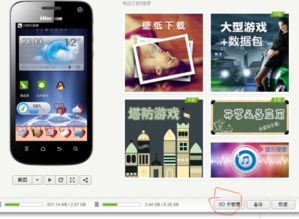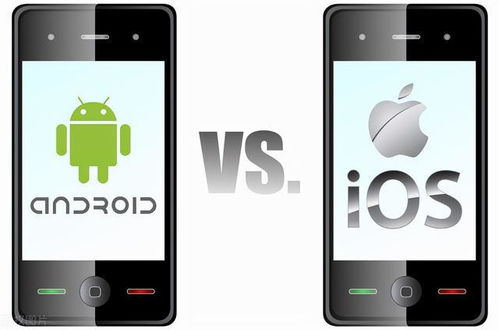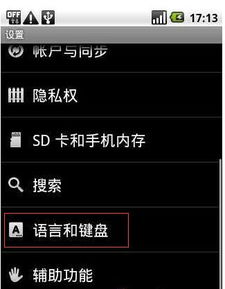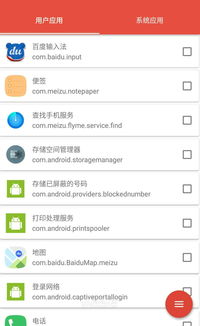
苹果系统与安卓系统英文,Introduction to Apple's iOS and Android Systems
时间:2024-12-09 来源:网络 人气:
Introduction to Apple's iOS and Android Systems

When it comes to mobile devices, the operating systems (OS) that power them are the backbone of user experience. Two of the most prominent OSes in the market are Apple's iOS and Google's Android. This article delves into the characteristics, differences, and user experiences of these two systems.
Understanding iOS: Apple's Exclusive OS

Developed by Apple Inc., iOS, originally known as iPhone OS, is a closed-source operating system exclusively designed for Apple's hardware. It powers a range of devices, including the iPhone, iPad, and iPod Touch. iOS is known for its seamless integration with other Apple products, such as the Mac, Apple Watch, and AirPods.
Key features of iOS include:
Highly secure and private user experience
Intuitive and user-friendly interface
Regular updates and improvements
Extensive ecosystem of apps and services
Exploring Android: The Open Source OS

Android, developed by Google, is an open-source operating system based on the Linux kernel. It is available for a wide range of devices from various manufacturers, including smartphones, tablets, and even smartwatches. The open-source nature of Android allows manufacturers to customize the OS to suit their devices, leading to a diverse array of Android-based devices.
Key features of Android include:
Highly customizable user interface
Access to a vast array of apps and services
Regular updates, although not as consistent as iOS
Lower cost of devices compared to Apple's ecosystem
Differences Between iOS and Android

While both iOS and Android serve the same purpose of providing a platform for mobile devices, there are several key differences between the two:
Security and Privacy: iOS is generally considered more secure and private, thanks to Apple's strict control over the App Store and the closed-source nature of the OS.
Customization: Android offers a higher degree of customization, allowing users to modify their device's appearance and functionality to their liking.
App Ecosystem: Both platforms have extensive app ecosystems, but iOS tends to have a higher quality of apps, especially for certain categories like gaming and productivity.
Cost: Android devices are generally more affordable than Apple's offerings, making them a popular choice for budget-conscious consumers.
User Experience: iOS vs. Android

The user experience of iOS and Android can vary significantly based on personal preferences and needs. Here are some factors to consider:
Performance: iOS devices are known for their smooth and responsive performance, thanks to Apple's hardware and software optimization.
Design: Apple's devices are often praised for their sleek and minimalist design, while Android devices come in a wide variety of designs and form factors.
Accessibility: Both platforms offer a range of accessibility features, but iOS tends to have a more comprehensive set of options.
Integration: iOS devices offer seamless integration with other Apple products, while Android devices can integrate with a wide range of third-party apps and services.
Conclusion

In conclusion, both iOS and Android are powerful and versatile operating systems that cater to different user needs. While iOS offers a secure, intuitive, and integrated experience, Android provides greater customization and affordability. Ultimately, the choice between the two will depend on individual preferences and requirements.
Tags:

Apple iOS, Google Android, mobile operating systems, user experience, security, customization
教程资讯
教程资讯排行
- 1 安卓系统清理后突然卡顿,系统清理后安卓手机卡顿?揭秘解决之道!
- 2 安卓系统车机密码是多少,7890、123456等密码详解
- 3 vivo安卓系统更换鸿蒙系统,兼容性挑战与注意事项
- 4 希沃白板安卓系统打不开,希沃白板安卓系统无法打开问题解析
- 5 dell进不了bios系统,Dell电脑无法进入BIOS系统的常见原因及解决方法
- 6 x9手机是安卓什么系统,搭载Funtouch OS3.0的安卓体验
- 7 安卓系统优学派打不开,安卓系统下优学派无法打开的解决攻略
- 8 安卓车机怎么查系统内存,安卓车机系统内存检测与优化指南
- 9 Suica安卓系统,便捷交通支付新体验
- 10 12pm哪个系统最好,苹果12哪个版本的系统更省电更稳定







![游戏 [][][] 创意齿轮](/uploads/allimg/20251218/9-25121R03143202.jpg)



